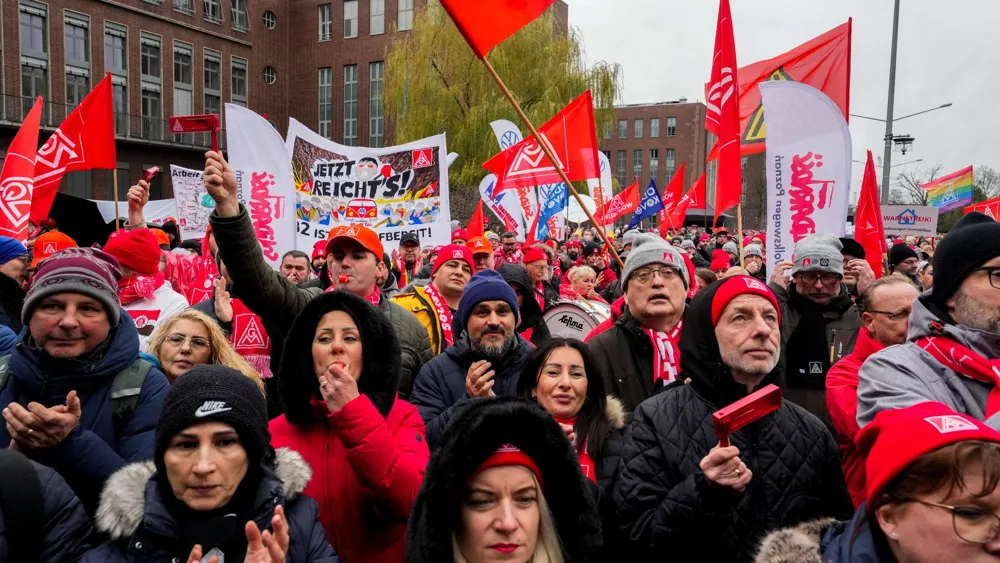Feeling of Betrayal Grows at VW Amid Slow Strike Talk Progress

Volkswagen is experiencing escalating tensions with the IG Metall union as discussions regarding wages and future production in Germany have yet to yield any immediate results, deepening feelings of betrayal among its workforce.
On Monday, negotiations between Volkswagen executives and union representatives concluded without significant progress, with both sides agreeing only to resume talks the following week. Workers are increasingly frustrated as the situation stagnates, facing the potential for unprecedented industrial action in the new year.
"There will be no plant closures in this country," declared Daniela Cavallo, head of the works council at Volkswagen AG, as she addressed a large crowd during a warning strike that was strategically timed with the negotiations.
In bitterly cold weather outside Volkswagen's headquarters in Wolfsburg, demonstrators voiced their readiness for nationwide strikes, underlining the growing unrest among the workforce.
The four-hour walkout in Wolfsburg was echoed at nine of the ten VW facilities in Germany, with the exception of Osnabrück, where operations continued uninterrupted, as those workers are represented by a union other than IG Metall.
IG Metall's chief negotiator, Thorsten Groeger, emphasized that the time has come for the Volkswagen board to take action, highlighting the urgency of the situation.
Volkswagen's management has been sounding alarms since the summer when a profit warning indicated that the company may have roughly two years to turn its fortunes around.
Groeger conveyed a clear expectation to reporters prior to the talks, urging Volkswagen to reconsider its rigid positions and engage in meaningful negotiations.
"Trust has been shattered. Workers are extremely upset, and the actions of the board risk damaging the VW brand, contributing to a significant drop in share prices. The responsibility lies with the board," he asserted.
Despite union and works council proposals that could potentially save Volkswagen up to 1.6 billion dollars, it is evident that deeper cost-cutting measures are necessary.
The urgency for drastic measures stems from weak demand for cars in Europe coupled with high manufacturing costs in Germany, making it increasingly difficult for Volkswagen to compete with emerging rivals.
Currently, Volkswagen employs around 300,000 workers across ten plants in Germany, and initial plans from the board aimed to close three plants, which would result in the elimination of many jobs and a proposed ten percent wage reduction for remaining employees.
In 2024, Volkswagen's stock price has suffered immensely, plummeting nearly 25 percent, reflecting the company's pressing financial challenges.
Read These Next

China Launches Equipment Renewal Plan for Energy Sector
China has launched a plan to boost sustainable energy investment by over 25% by 2027, targeting coal, wind, solar, and hydropower.

China's Juncao Technology Offers Joy with Magic Grass
Juncao technology from China enhances sustainable farming, using a grass substitute for mushrooms, aiding food security and poverty alleviation.

Poll Shows Americans Doubt Trump's Handling of Measles Outbreak
Poll shows Americans doubt Trump admin's handling of the largest measles outbreak in 25 years, raising vaccine trust issues.
